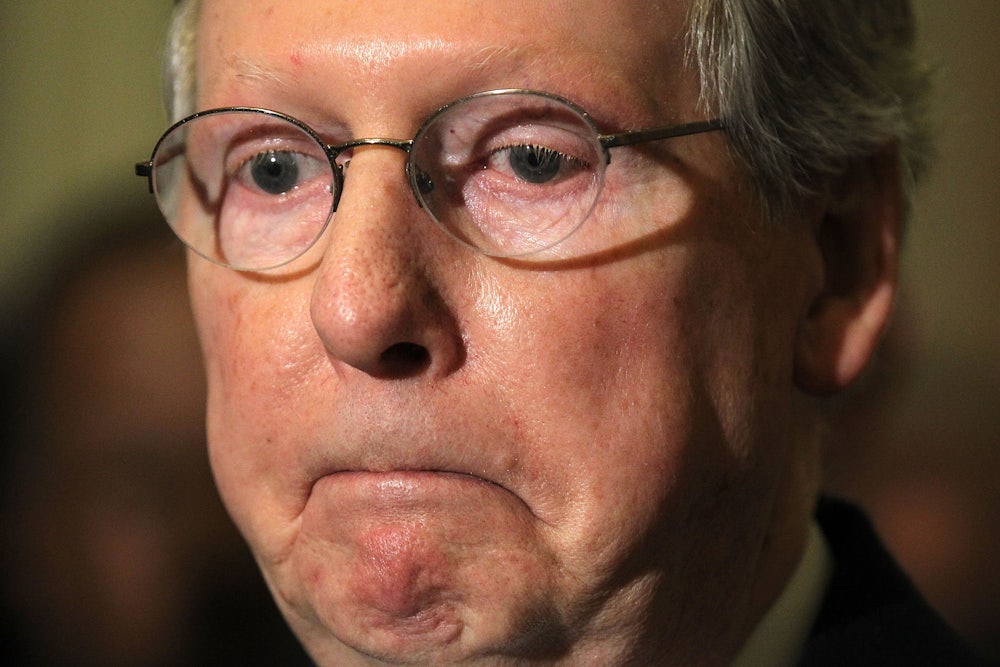It was just one in a constellation of promises related to health care. He also insisted that his administration wouldn’t cut Medicaid and that he would make sure there is “insurance for everybody.” He pledged to lower premiums and deductibles. These promises helped convert many voters who were otherwise skeptical of the economic program of the Republican Party, which is based around rolling back the welfare state and giving tax cuts to the wealthy. The Senate’s bill to repeal and replace Obamacare, which was scored on Monday, violates all of these promises.
The initial conventional wisdom after the House of Representatives passed the American Health Care Act in May was that there was no way the Senate would go for anything so brazenly cruel. The House’s bill would leave 23 million without insurance by 2026 and cut $800 billion from Medicaid. Several Republican senators, after all, represent states that expanded Medicaid under the Affordable Care Act. Hundreds of thousands of their constituents would lose their insurance.
But the Congressional Budget Office’s report suggests that, functionally speaking, the Senate’s bill is no different from the House’s. It projects that a mere 22 million people will lose their health insurance by 2026. The cuts to Medicaid are just as extreme, and get worse with time. “By 2026, among people under age 65,” the CBO report reads, “enrollment in Medicaid would fall by about 16 percent and an estimated 49 million people would be uninsured, compared with 28 million who would lack insurance that year under current law.” The bill is basically an enormous assault on Medicaid, all to pay for taxes for the rich.
The CBO also undercuts what had been one of the few arguments in favor of the Senate’s bill, which is that it would do more to help people below the poverty line. Instead, the CBO finds that the tax credits offered by the Senate bill would be completely useless to the poor.
The Senate’s bill, however, reduces the federal budget by $321 billion over the next 10 years, compared to the House bill, which reduces it by $119 billion. This is most likely by design. Mitch McConnell can now offer the $202 billion difference as concessions to Republican fence-sitters, most likely in the form of programs to combat opioid addiction.
McConnell is going to use every trick in his bag (which is full of tricks) over the next couple of days to persuade Republicans that a bit of extra spending will make the bill more palatable to their constituents. But this political silver lining is really unimportant in the larger context, which is that the Senate’s bill is god-awful. Regardless of how that $200 billion is spent, it will do little to change the fact that 22 million people will lose their insurance.
